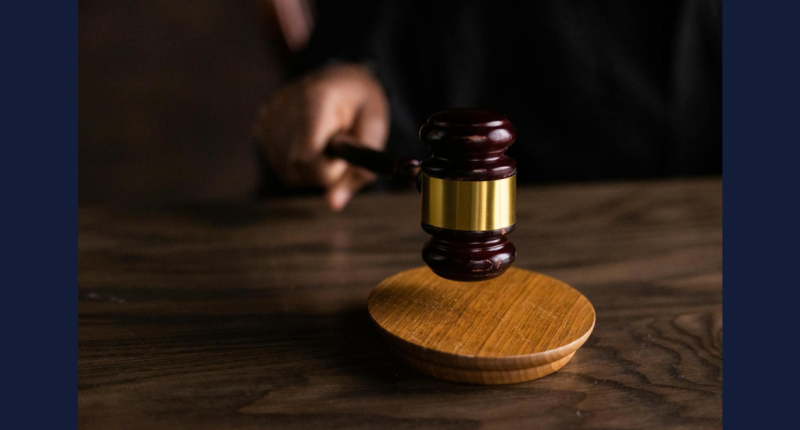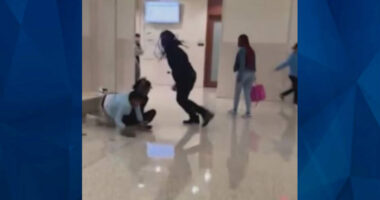Share this @internewscast.com
Proponents of the changes believe they are essential for maintaining public safety, while opponents argue that these measures could infringe on constitutional rights, exacerbate racial inequalities, and increase jail overcrowding.
This article is sponsored by the Omar Saman Law Firm, a Houston-based criminal defense practice. The Omar Saman Law Firm does not represent any individuals mentioned or indexed in the discussed incidents. Their involvement serves purely educational purposes regarding pending legislation on violent crimes and the vital necessity for competent defense for individuals accused of severe offenses in Texas.
In Texas, a rising political and legal debate is intensifying over the state’s approach to bail for individuals accused of serious crimes. Prompted by recent notable incidents, lawmakers are suggesting new restrictions that would make it harder for certain defendants, especially those facing violent or repeated charges, to secure release from jail while awaiting trial.
Supporters argue the changes are critical to ensure public safety. Critics say they risk violating constitutional rights, expanding racial disparities, and worsening jail overcrowding. With bipartisan attention and high-profile endorsements, the outcome of this debate could reshape Texas’s pretrial justice system for years to come.
What Is Bail and Why Is It Controversial?
Bail is a process that allows people accused of certain crimes to be released from jail while their case is pending—often by paying a cash amount or agreeing to specific conditions. In Texas, some individuals are released through personal recognizance (PR) bonds, which require no upfront payment but rely on a promise to return to court.
In recent years, PR bonds have become more common in cases involving nonviolent offenses, especially in counties like Harris County. However, several recent violent crimes allegedly committed by individuals released on bond have triggered alarm among state officials.
The tension centers around balancing public safety with the vital constitutional right to be innocent until proven guilty. Now, that balance is under renewed scrutiny.
Bail Reform Declared a Top Priority
In February 2025, Texas Governor Greg Abbott declared bail reform an emergency legislative item during his state of the State address. He emphasized the need to amend the Texas Constitution to allow local judges to deny bail to individuals charged with capital murder and other serious violent crimes, as well as to undocumented immigrants deemed flight risks. Abbott criticized certain judges for granting bail to repeat offenders, asserting that such practices endanger public safety.
The state’s Lt. Governor has echoed this call, listing bail reform among his legislative priorities. He has even suggested that a special session may be called if sufficient action isn’t taken during the regular legislative calendar.
Key Proposals Under Consideration
Several legislative measures are under review:
- Senate Bill 9 (SB 9): Unlike early reports, SB 9 does not expand the list of offenses ineligible for bail. Instead, it focuses on regulating charitable bail organizations, setting specific duties for magistrates, and sometimes requiring notices to victims.
- House Joint Resolution 15 (HJR 15): Proposes a constitutional amendment allowing Texas judges to deny bail for defendants charged with serious violent or sexual offenses if a judge finds that no release conditions would reasonably ensure public safety.
- House Bill 75 (HB 75): Accompanies HJR 15 and outlines procedural duties for judges when considering bail. It does not mandate expanded detention across the board. It includes new rules on judicial findings and the role of magistrates in setting bail.
- House Joint Resolution 16 (HJR 16): Would amend the Texas Constitution to allow denial of bail to individuals identified as “illegal aliens” charged with felonies if a judge finds probable cause.
These proposals reflect a growing push to limit judicial discretion and tighten pretrial release conditions, particularly for violent or repeat offenders.
The Argument for Reform: Public Safety and Accountability
Supporters of stricter bail laws argue the current system allows dangerous individuals to return to the streets too easily, sometimes with deadly consequences.
In Harris County, critics have highlighted incidents where individuals were released on multiple bonds before being re-arrested for violent offenses. These cases have fueled public concern, though data show that the impact of bail practices is more nuanced.
Houston’s Crime Stoppers of Houston and some bail bond industry representatives argue that PR bonds are overused, bypassing traditional financial accountability and weakening deterrence for serious crimes.
However, recent data from Harris County’s misdemeanor bail reform efforts show that pretrial release has not increased violent crime and has reduced racial disparities in who is jailed pretrial.
Critics Warn of Unintended Consequences
Civil rights organizations, including the well-known ACLU of Texas and the Texas Organizing Project (TOP), have consistently raised concerns that stricter bail laws may disproportionately impact low-income and minority communities. They argue that such reforms risk creating a two-tiered justice system where an individual’s freedom before trial depends more on their financial means than actual risk factors.
The ACLU of Texas has highlighted that proposed bail legislation could impose an absolute bar on release for individuals unable to afford bail while allowing those with financial resources to secure their freedom. This disparity means that identically situated individuals could experience vastly different pretrial outcomes based solely on their economic status. The organization warns that such policies could lead to more innocent people pleading guilty to crimes they didn’t commit and more poor individuals remaining in jail awaiting trial.
Critics also raise alarms about jail overcrowding. For instance, the sheriff’s office has received increased funding in Bexar County due to growing overtime costs and capacity issues at its county jail.
Further criticism is directed at HJR 16, which targets undocumented immigrants. Legal scholars and immigration advocates argue it may encourage racial profiling, and they stress that bail decisions should be based on individual flight or safety risk—not immigration status.
Is the Media Fueling the Push for Stricter Laws?
Some experts argue that media coverage of violent crimes involving individuals out on bail can distort public perception. Emotional stories often dominate headlines and can prompt reactive policymaking, even when crime trends do not support a systemic crisis.
While specific incidents are undeniably tragic, they do not necessarily reflect typical outcomes of pretrial release policies. Analysts from the Brennan Center for Justice note that most bail reforms across the U.S. have not increased violent crime.
What This Means for Defendants
If Texas passes these proposals, more people charged with serious crimes could remain jailed until their cases are resolved, even if they have not yet been convicted. Defense attorneys warn this could weaken due process, limit defendants’ ability to prepare for trial and coerce plea deals due to the pressure of incarceration.
Texas already imposes harsh penalties for violent crimes. For instance, aggravated robbery, kidnapping, and murder carry potential jail sentences ranging from a period of several years to life in prison, depending on aggravating factors like weapon use or prior convictions.
Law firms such as Omar Saman, P.C. emphasize the importance of securing an experienced violent crimes attorney early in a case to protect your rights, challenge evidence, and prepare a strong defense strategy. Pretrial detention can significantly affect a defendant’s ability to assist in their defense or gather supporting evidence—making timely legal counsel essential.
Looking Ahead: What Will the Legislature Decide?
The legislative session continues, with intense lobbying from both sides. Texas officials remain committed to passing reforms—possibly via constitutional amendments. At the same time, opposition from civil rights advocates, legal experts, and some local officials is mounting.
The future of pretrial justice in Texas may hinge on whether lawmakers can balance community safety and constitutional fairness. The impact will be felt in courtrooms, jails, and communities across the state—potentially for decades.
Members of the editorial and news staff of Law&Crime were not involved in the creation of this content.

















